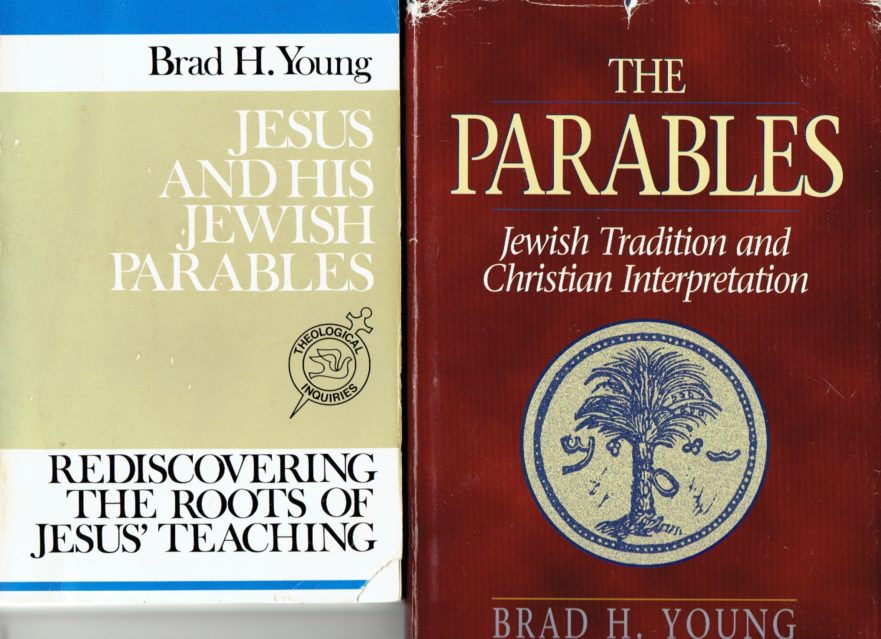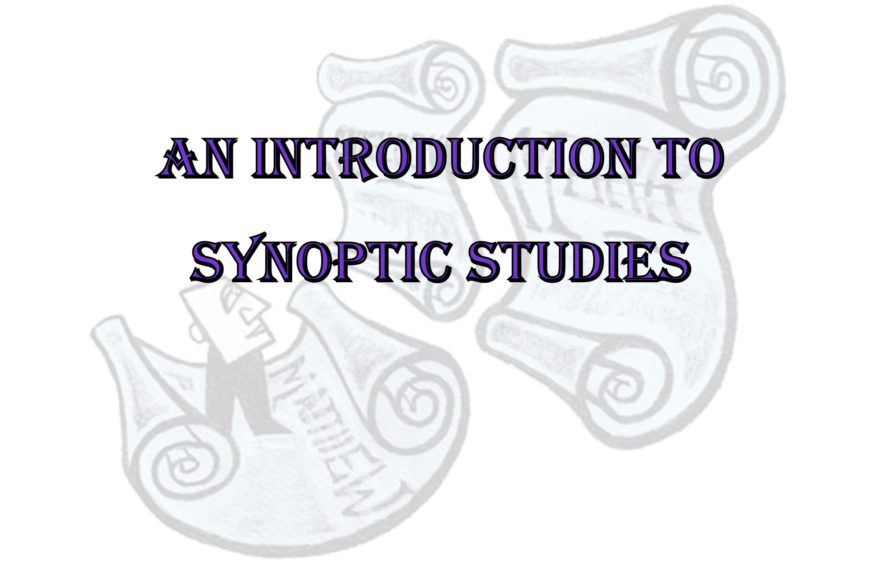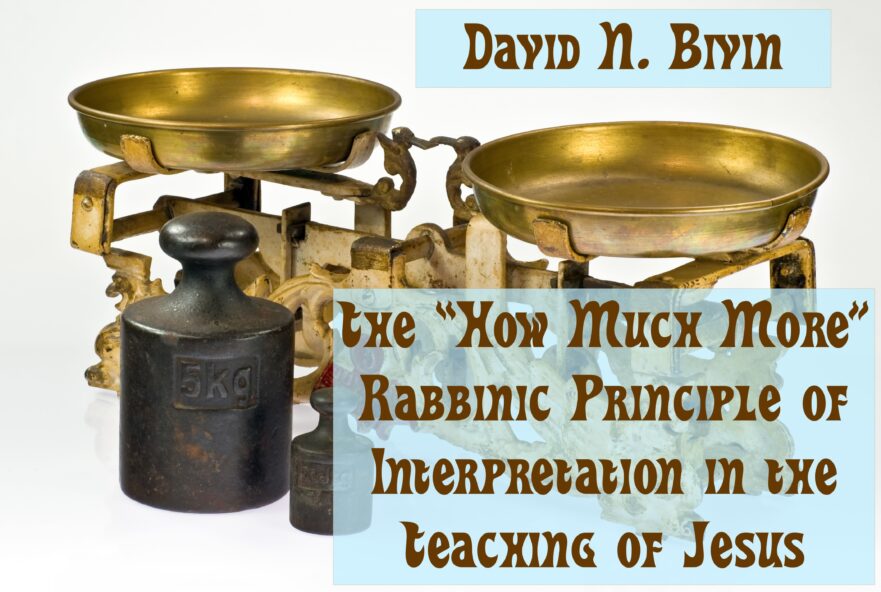One of the many interesting results of synoptic research is the discovery of parallels between rabbinic literature and the Gospels of Matthew, Mark and Luke. Rabbinic parallels enhance our understanding of the sayings of Jesus, and vice versa. Jesus’ parable below is more understandable when compared with its rabbinic parallels, and the rabbinic sayings are illuminated by Jesus’ parable.
Understanding Parables

The rabbis taught, “Do not underestimate the value of parables, because by means of parables a person can master the words of Torah” (Song of Songs Rabbah 1:8).
An Introduction to Synoptic Studies

The late Dr. Robert Lindsey, pioneer translator of the Gospels into modern Hebrew, synoptic researcher and pastor of Jerusalem’s Narkis Street Congregation, resided in Israel for over forty years. His discoveries challenge many conclusions of New Testament scholarship from the past two hundred years. Lindsey created a new approach to the study of the Synoptic Gospels. Here, Lindsey provides an introduction to the field of synoptic studies and the “Synoptic Problem.”
The Lord’s Prayer 10: A Hebrew Reconstruction

As a summary of Dr. Bradford Young’s series on the rabbinic background to the Lord’s Prayer, we present his English transliteration of the conjectured Hebrew original and its English translation.
The Lord’s Prayer 9: “Lead Us Not Into Temptation”

It is difficult to grasp the full impact of the Lord’s Prayer without an appreciation of its Jewish background. Today’s Christians have quite a different understanding of prayer, Scripture and faith than a Jewish teacher like Jesus. One easily can miss the great depth of Jesus’ message.
The Lord’s Prayer 8: “Forgive Us Our Debts”

Forgiveness is one of the main emphases in Jesus’ teaching. It is no wonder, then, that forgiveness is part of the short prayer that Jesus taught his disciples.
The Lord’s Prayer 7: “Give Us This Day Our Daily Bread”

The deceptively simple petition from Matthew 6:11, “Give us this day our daily bread,” has been a matter of controversy for centuries. The unusual Greek word epiousion, which is translated “daily,” is the root of the controversy. Some scholars have suggested that the original phrase contained the similar-sounding Greek word epeimi, (the next), and so meant “bread for the next day.” Nevertheless, the Latin translation of the New Testament understood the word as meaning bread needed for sustenance.
The Lord’s Prayer 6: “Thy Will Be Done”

We noted in a previous article that “Thy will be done” parallels “Thy Kingdom come.” Both phrases mean, “May you continue establishing your Kingship.” Jesus does not instruct his disciples to pray “if it is your will.” It is within God’s purpose that all men should repent and become a part of God’s reign. “May your will be accomplished” is a strong affirmative appeal.
The Lord’s Prayer 5: “Thy Kingdom Come” (Part 2)

Like Jesus, the rabbis made frequent reference to “the Kingdom of Heaven.” A familiarity with the way “Kingdom of Heaven” is used in rabbinic literature is essential for understanding its use in the Gospels.
The Lord’s Prayer 4: “Thy Kingdom Come” (Part 1)

Probably no other aspect of Jesus’ teaching has been so greatly misunderstood as the Kingdom of Heaven. Certainly, few themes are more essential for understanding Jesus.
Mary and Martha: The Rest of the Story

In Robert L. Lindsey’s theory of gospel transmission, the Hebrew version of Jesus’ biography and its Greek translation have both been lost. Although none of the synoptic Gospels preserves the original text in its entirety, together they do preserve all, or nearly all, of the stories in the original work.
The Lord’s Prayer 1: Introduction

Too often, the importance of the Jewish background of the prayer and of the language that Jesus used has been overlooked or minimized.
The Lord’s Prayer 2: “Our Father Who Art in Heaven”

The description of God as “father” is not coincidental. The father figure was of great significance in the Hebrew family.
The “How Much More” Rabbinic Principle of Interpretation in the Teaching of Jesus

The use of simple-to-complex reasoning (kal vahomer in Hebrew) is as frequent in the teaching of Jesus as in the teaching of the sages.
- Page 2 of 2
- 1
- 2

